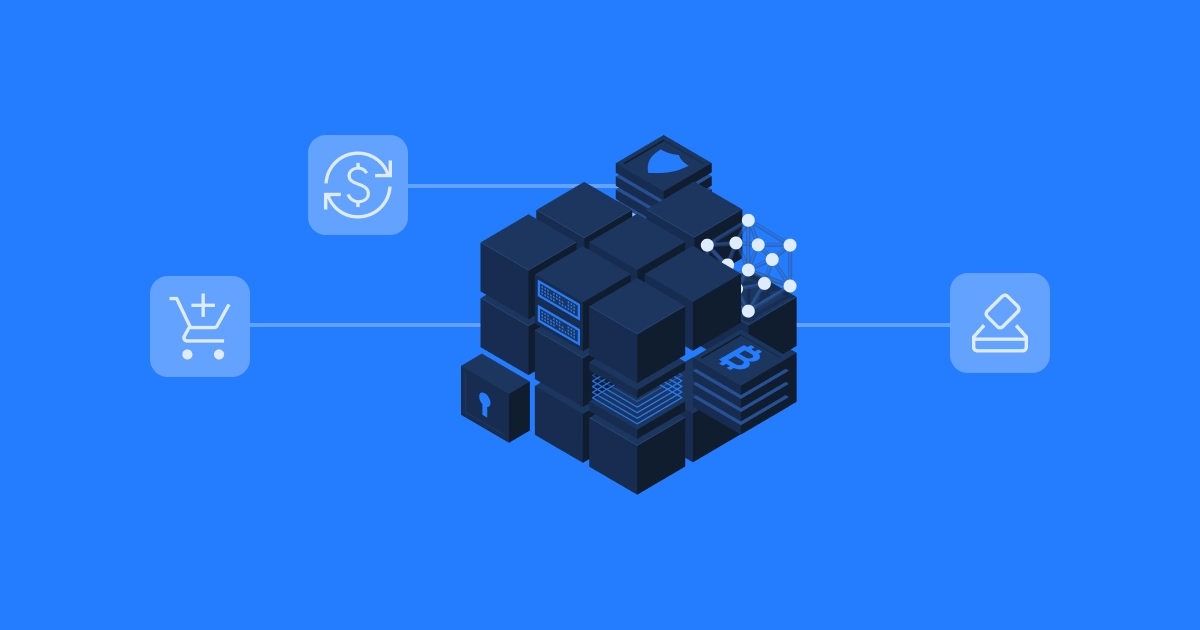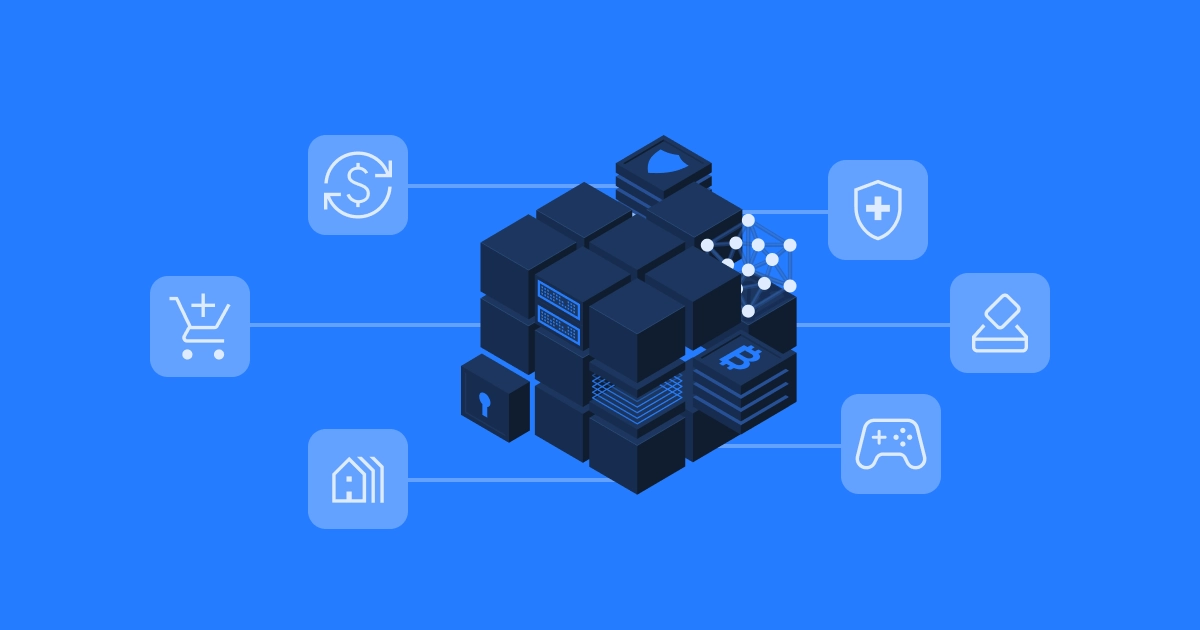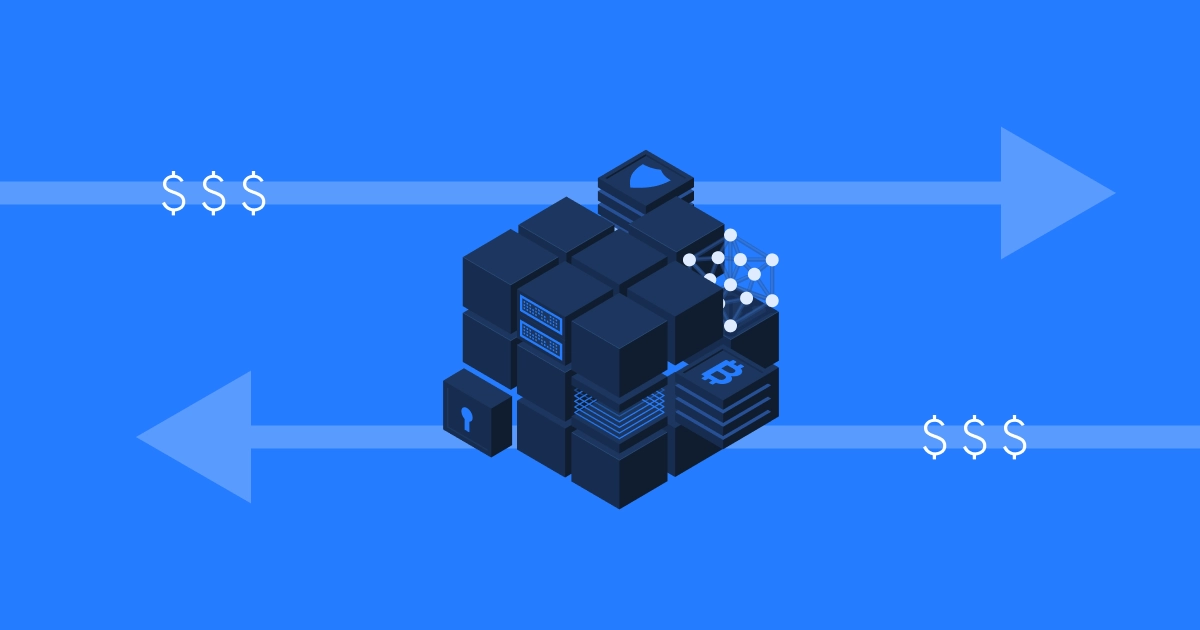Q1 2025 Market Report This report will cover all the shifts that...

If you’re a crypto enthusiast, then you must be familiar with blockchain too. Blockchain technology has transformed the way we perceive transactions, security, and storage of data. Its possible applications exceed crypto realm, having the potential to revolutionize a variety of industries ranging from healthcare to supply chain management.
Blockchain technology emerged in 1991 for the very first time in the study by scientist Stuart Haber and W. Scott Stornetta. However, it has gained popularity in the last two decades. But what are the capacities and the future of blockchain? Let’s find out.
Table of contents
Blockchain refers to a distributed ledger system that has the power to completely change how we transact, store, and communicate online. It started gaining after being mentioned in the whitepaper titled “Bitcoin: A Peer-to-Peer Electronic Cash System” published in 2008 by pseudonymous Satoshi Nakamoto.
Blockchain technology is fundamentally a decentralized database that securely and openly records transactions. It is made up of a network of computers that cooperate to authenticate and verify transactions before adding them to a common digital ledger.
Immutability, or the inability to change or remove a transaction after it has been added to the blockchain, is one of the main characteristics of blockchain technology. Because of this, blockchain technology is perfect for applications that need a high level of security and transparency, like supply chain management, voting systems, and financial transactions.

The potential of blockchain technology extends well beyond the financial sector. It has the potential to revolutionize a variety of sectors such as healthcare, real estate, logistics, and energy, to name a few, by offering safe, open, and effective answers to challenging issues.
By offering a tamper-proof ledger for tracking goods from their source to the final customer, blockchain is being utilized to simplify supply chain management.
Businesses can use blockchain to verify that products are genuine and that their origins can be tracked in order to prevent counterfeit goods, cut down on waste, and improve sustainability.
In addition, blockchain is utilized to securely and effectively store and manage medical records. Additionally, it offers a means of preserving the accuracy of clinical research data and enhancing openness and confidence between patients and healthcare professionals.
The future of blockchain in healthcare is yet to advance with the advancement of technology.
Blockchain technology can be also used to establish a transparent, impermeable voting system that is less prone to fraud or manipulation. By making voting more convenient and accessible, it may also increase voter participation.

With the use of blockchain, it is possible to buy, sell, and track real estate properties in an effective and secure manner. By removing middlemen like brokers or attorneys, this technology enables participants in the trade to lower transaction costs.
Last but not least, blockchain can be employed to build systems for provably fair gaming, where the outcome of each game is tamper-proof and publicly verifiable. The gaming business may enter a new era of transparency and trust because of this technology.
With this in mind, it can’t be denied that other future applications of blockchain will emerge.
Blockchain technology has attracted a lot of attention recently because of its potential to improve security across a range of businesses. One of the main characteristics of blockchain that makes it a desirable alternative for boosting security is its immutable nature.
Due to the immutability of blockchain, a transaction that has already been recorded there cannot be changed or removed. This is accomplished by using cryptographic hashes to connect each transaction to the one before it, forming an uninterrupted data chain that is very challenging to tamper with.
Blockchain technology has the potential to drastically lower the risk of fraud and data breaches when used for sensitive data including financial transactions, medical information, and identity management.
In the same way, secure and transparent data sharing is another advantage of blockchain technology. With blockchain, data can be exchanged safely and openly because every current and future user of blockchain has access to the same data and can verify its accuracy.
The way financial transactions are conducted has undergone a considerable transformation with the introduction of blockchain technology.

The potential for faster and more efficient transactions is one of blockchain’s most important effects on banking. Blockchain is a desirable alternative for both businesses and consumers since it cuts transaction times and costs by eliminating intermediaries and automating procedures.
Furthermore, by ensuring that financial transactions are unchangeable and tamper-proof, blockchain technology can improve their security. This can help to reduce fraud and other financial crimes, which are major worries for the banking sector.
The world of international payments is another area where blockchain is likely to have a large impact. Cross-border payments at the moment frequently take a long time and are expensive due to high fees and currency rates. Blockchain technology enables real-time payment settlement as well as considerable fee and exchange rate reductions.
By giving underbanked or unbanked individuals access to banking services, blockchain technology can also increase financial inclusion. People who previously had no access to financial services like savings accounts, loans, and insurance can now do so by utilizing mobile phones or other digital devices.
All things considered, the future of blockchain in finance is bright, provided that technology abides by all the laws and regulations.
The idea of digital identity and privacy is more crucial than ever in the current digital era. Given the growing use of online services and transactions, people must be capable of managing their digital identities securely while protecting their personal information
A potential solution to this challenge is blockchain technology. Since it implements a decentralized and secure network, blockchain enables people to keep control over their digital identities while making sure their privacy is preserved.
By offering consumers more control over their personal information and enhancing the security of their digital transactions, blockchain technology has the potential to usher new era of data privacy and security.
Although they are still in the early phases of development, the future of blockchain-based solutions for digital identification and privacy is promising. The need for secure and decentralized solutions will increase as more people realize how crucial it is to protect their personal data.

In recent years, blockchain technology has gained popularity quickly, and its potential uses go far beyond its cryptocurrency-related origin. It is critical to get ready for the opportunities and difficulties that will come as the world transitions to a more digital and decentralized future.
The potential of blockchain technology to foster confidence in a decentralized system is one of its most important benefits. This has the potential to transform sectors where trust is crucial, like finance, healthcare, and real estate.
However, in order to fully take use of blockchain’s advantages, it is essential to create the required infrastructure, acquire the required skills, and deal with the problems that this technology presents.
Yet, one of the main challenges with blockchain technology is scalability. The demand for processing power and storage rises as more individuals and businesses use blockchain technologies. This results in a bottleneck that might reduce network performance and make scaling challenging.
Developers are experimenting with various strategies, such as sharding and off-chain scaling solutions, to enhance the functionality of blockchain networks in order to get around this problem.
Regulation compliance is another big problem. Governments all across the world are starting to pay attention as blockchain technology spreads. They are starting to create rules that are meant to safeguard customers, stop fraud, and guarantee that technology is used responsibly. It is essential to keep up with these laws and make sure your blockchain solutions abide by them.
The challenge of talent comes last. Due to the fact that blockchain technology is still in its infancy, there is a lack of qualified individuals who can design, create, and maintain blockchain solutions.
It is crucial to invest in education and training programs that can offer the necessary information and skills in order to get ready for a future powered by blockchain technology.
Latest Articles
Veli is Going for the MiCA License! A new era in compliance...
Over 100 New Coins Added to the Veli Platform! 🚀 Earlier this...